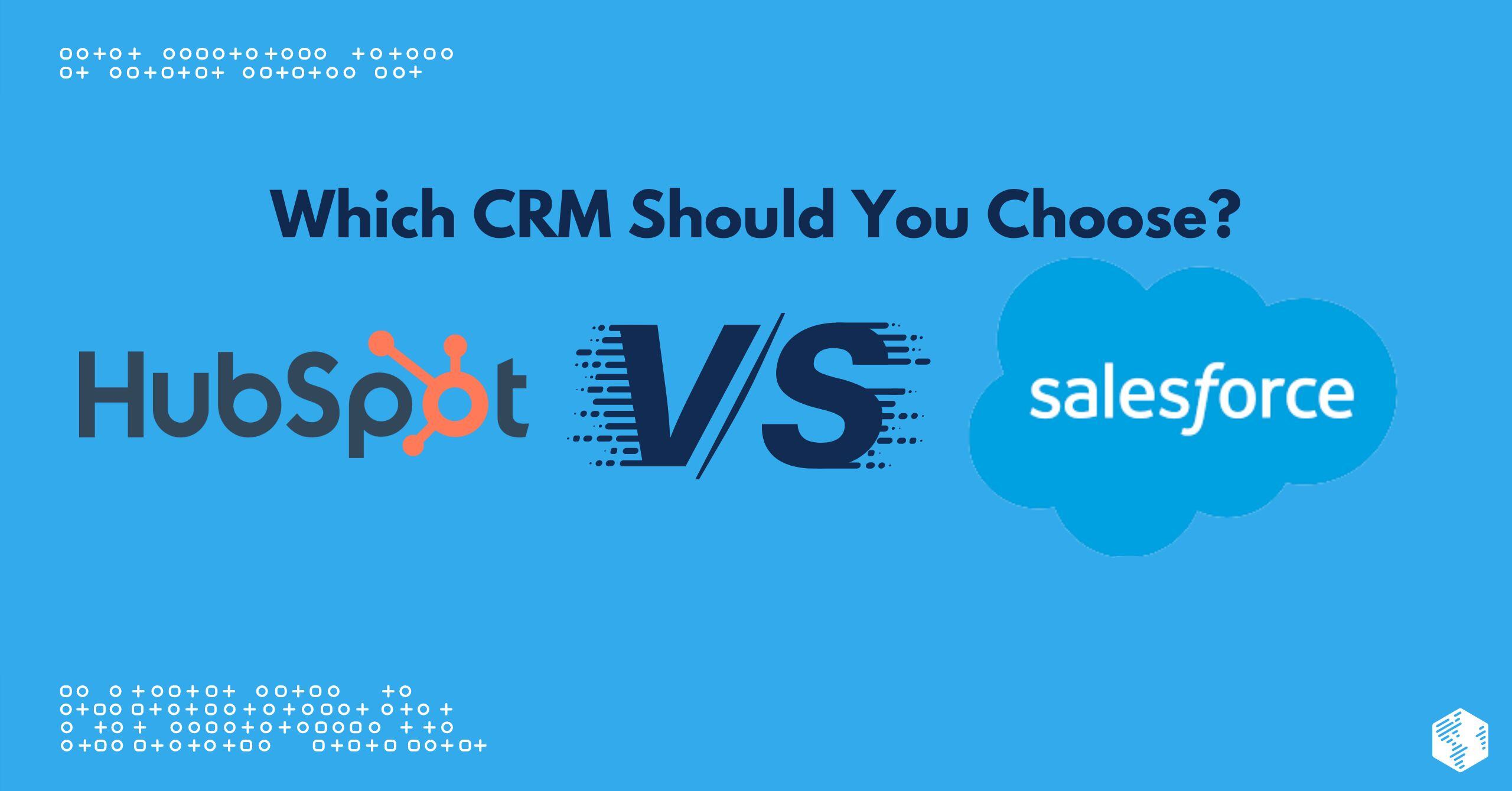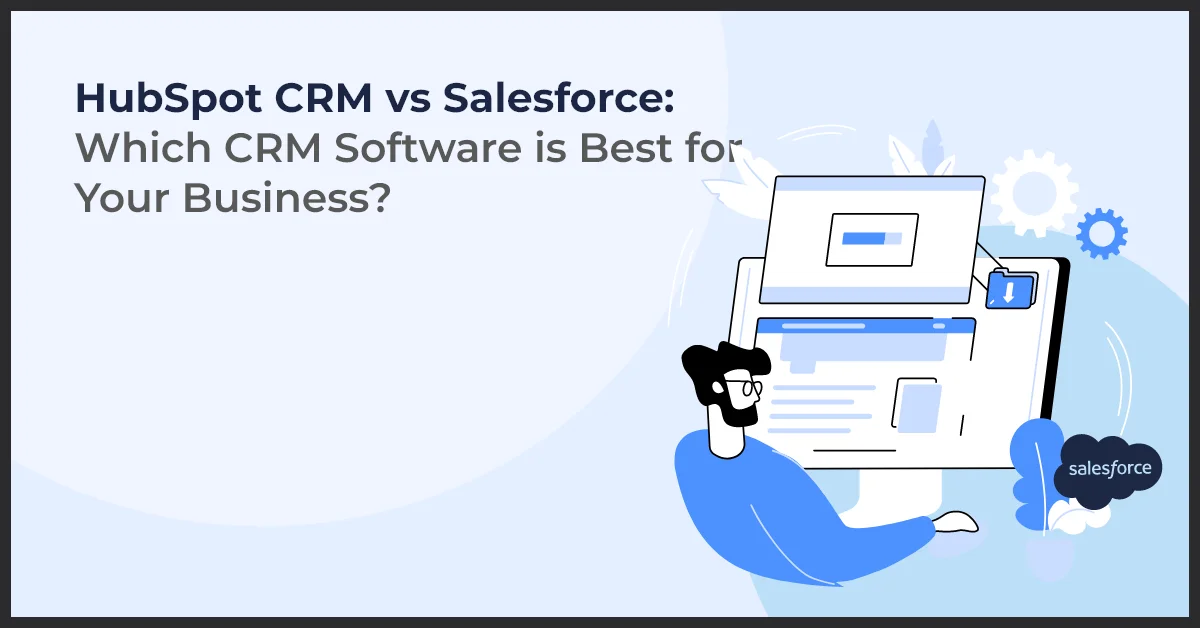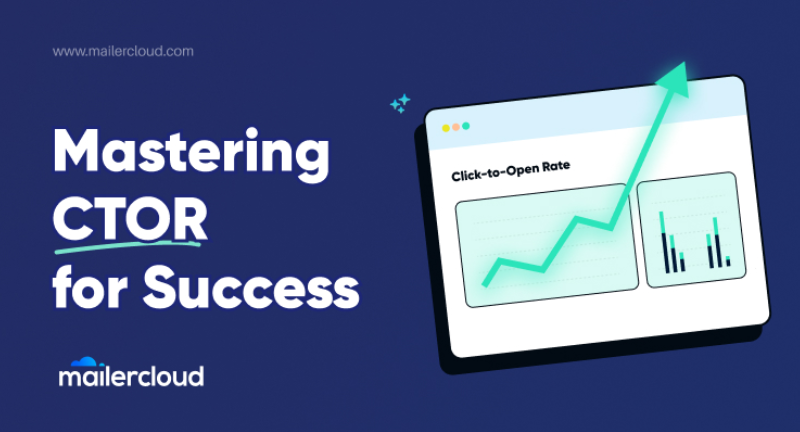HubSpot is best for small to mid-sized businesses needing an easy-to-use CRM. Salesforce suits larger companies with complex needs.
Choosing the right CRM for your business can be challenging. Both HubSpot and Salesforce offer robust solutions for managing customer relationships, but they cater to different needs. HubSpot is user-friendly and cost-effective, ideal for small to mid-sized businesses. It offers seamless integration with marketing tools and provides an intuitive interface.
On the other hand, Salesforce is highly customizable and scalable, making it perfect for larger enterprises with complex requirements. It supports a wide range of functionalities and integrates with numerous third-party applications. Understanding your business size, budget, and specific needs will help you decide which CRM is the best fit for your organization.
Hubspot Overview
Hubspot was founded in 2006. The company is based in Cambridge, Massachusetts. It focuses on inbound marketing. Hubspot helps businesses attract visitors. It converts leads into customers. Many companies use Hubspot worldwide.
Hubspot offers a range of features. These include email marketing, social media tools, and landing page builders. The CRM also provides automation tools. Users get analytics and reporting. Hubspot’s integrations with other tools are seamless.
Hubspot offers multiple pricing plans. The basic plan is free. It includes essential CRM tools. The Starter plan costs $50 per month. The Professional plan starts at $800 per month. The Enterprise plan begins at $3,200 per month. Each plan adds more advanced features.
Salesforce Overview
Explore the key differences between Hubspot and Salesforce to determine the best CRM for your business. Compare features, pricing, and integrations to make an informed decision. Find the ideal CRM solution tailored to your company’s needs.
Company Background
Salesforce was founded in 1999. It started as a software company. The company is based in San Francisco. Salesforce offers cloud-based solutions. They help businesses manage relationships with customers. The company is known for its innovation. They focus on customer success. Today, Salesforce is a global leader in CRM.
Key Features
Salesforce provides many features. It offers sales automation. You can track customer interactions. It has a powerful analytics tool. There are customizable dashboards. The system integrates with many other apps. It supports email and social media marketing. You can create custom reports. Salesforce also provides mobile access.
Pricing Plans
| Plan | Price |
|---|---|
| Essentials | $25 per user/month |
| Professional | $75 per user/month |
| Enterprise | $150 per user/month |
| Unlimited | $300 per user/month |
Ease Of Use
HubSpot offers a user-friendly interface ideal for beginners, while Salesforce provides extensive customization for advanced users. Both platforms cater to different business needs based on ease of use.
User Interface
Hubspot has a very clean and simple interface. It is easy to navigate and find what you need. Icons and menus are clear. Everything feels intuitive.
Salesforce has a lot of features. This can make the interface feel crowded. It is powerful but can be overwhelming for new users.
Learning Curve
Hubspot is great for beginners. You can learn it quickly. There are many guides and tutorials. This helps new users feel comfortable.
Salesforce takes more time to learn. It has many advanced features. Training is often needed. This can be a barrier for small teams.

Credit: www.linkedin.com
Customization And Flexibility
HubSpot offers easy customization for small businesses. You can set up custom fields and reports. Salesforce provides deeper customization. You can modify almost every part of the system. This is great for larger businesses. Both platforms support custom workflows. Customization makes your CRM fit your business needs.
HubSpot integrates well with popular tools like Gmail and Slack. It has many third-party integrations. Salesforce has a vast AppExchange marketplace. You can find thousands of apps there. Integration helps streamline your business processes. Both CRMs offer APIs for more advanced integrations.
Customer Support
HubSpot offers intuitive customer support with a user-friendly interface, making it ideal for small businesses. Salesforce provides robust customer support features, perfect for large enterprises requiring extensive customization.
Support Channels
HubSpot offers support through email, chat, and phone. Salesforce provides phone, chat, and a vast online community. Both platforms have extensive help centers. Salesforce also offers 24/7 support for premium users. HubSpot’s support is available during business hours. Choose based on your business hours and support needs.
Customer Feedback
Users praise HubSpot for its user-friendly interface. Many find the support team responsive and helpful. Salesforce users appreciate the robust features. Some find the learning curve steep. HubSpot receives high marks for ease of use. Salesforce shines in customizability and scalability. Both platforms have loyal customers who value their strengths.
Scalability
HubSpot offers easy scalability for growing businesses with user-friendly features. Salesforce provides robust scalability for large enterprises needing advanced customization.
Growing With Your Business
HubSpot is perfect for small to medium businesses. It grows with you. HubSpot offers many features. These include marketing tools and sales automation. You can add more tools as your business expands. This makes HubSpot very flexible.
Salesforce excels for larger businesses. It handles complex processes well. Salesforce provides advanced customization. You can modify it to fit your needs. This makes it scalable for any business size.
Handling Large Data Volumes
Salesforce is great for large data volumes. It can manage millions of records. Salesforce ensures fast performance. It uses powerful servers to handle data. This makes it ideal for big enterprises.
HubSpot handles data efficiently too. It is good for smaller datasets. HubSpot keeps your data organized. It ensures quick access to information. This is suitable for growing businesses.
Use Cases
Choosing between HubSpot and Salesforce can significantly impact your business efficiency. Each CRM offers unique features tailored to different business needs. Assess your goals to determine the best fit.
Best For Small Businesses
Hubspot offers an easy-to-use interface. This makes it ideal for small businesses. Its free version includes many features. These features help small teams manage their leads. Hubspot also integrates well with other tools. These tools include email and social media. This integration saves time and simplifies workflows. Hubspot’s customer support is also top-notch. Small businesses benefit from excellent support.
Best For Enterprises
Salesforce is powerful and highly customizable. It is perfect for large enterprises. This CRM handles complex processes and large data volumes. Salesforce offers advanced analytics. These analytics provide deep insights into business performance. Its automation features streamline operations. Enterprises can scale their operations efficiently. Salesforce also provides a wide range of integrations. This flexibility is crucial for large companies.

Credit: oneims.com
Final Comparison
Comparing HubSpot and Salesforce helps determine the best CRM for your business. Both platforms offer unique features tailored to different needs. Evaluating their capabilities ensures you choose the right tool for your growth.
Pros And Cons
HubSpot is user-friendly and offers a free version. This is great for small businesses. Salesforce has robust features and customizable options. Large enterprises prefer it. HubSpot integrates well with other tools. Salesforce provides advanced reporting and analytics. HubSpot’s free version has limited features. Salesforce can be expensive and complex.
Which Is Right For You?
Small businesses benefit from HubSpot’s ease of use. Larger businesses need Salesforce’s advanced features. HubSpot works well for those new to CRM. Salesforce is best for those needing detailed reports. Budget-conscious users should consider HubSpot. Businesses with complex needs should choose Salesforce.

Credit: growthnatives.com
Frequently Asked Questions
What Are The Key Features Of Hubspot?
HubSpot offers lead management, email marketing, and analytics. It includes sales automation and customer service tools. It’s known for its user-friendly interface.
How Does Salesforce Pricing Compare To Hubspot?
Salesforce tends to be more expensive. Pricing varies based on the features and number of users. HubSpot offers a free tier.
Is Hubspot Easier To Use Than Salesforce?
HubSpot is generally considered easier to use. Its interface is more intuitive. Salesforce may require more training.
Which Crm Is Better For Small Businesses?
HubSpot is often better for small businesses. It offers scalable solutions and has a free tier. Salesforce is more complex.
Conclusion
Choosing between HubSpot and Salesforce depends on your business needs. Both offer robust CRM solutions. HubSpot is user-friendly and great for small businesses. Salesforce provides extensive customization for larger enterprises. Evaluate your requirements carefully to make an informed decision. The right CRM will streamline operations and boost your business growth.


